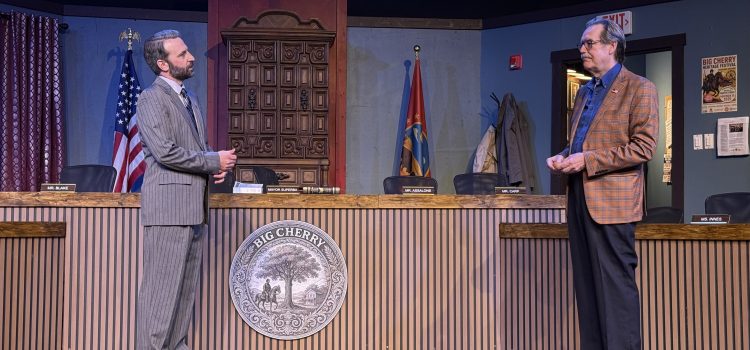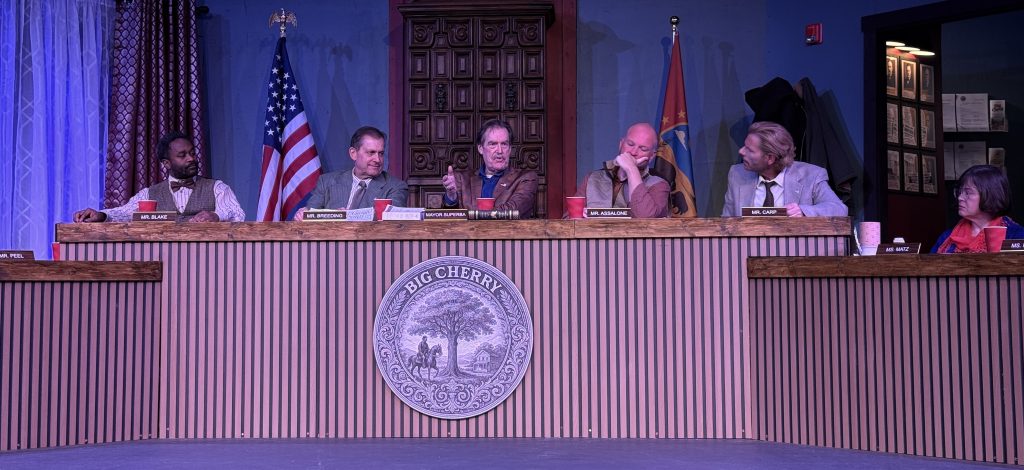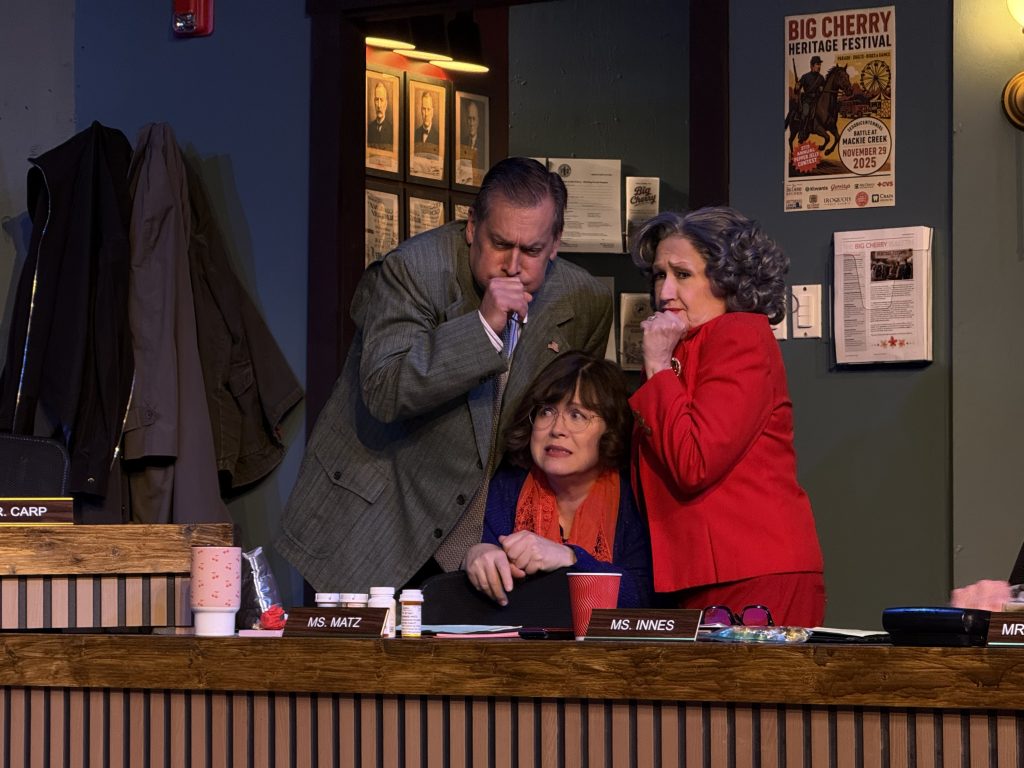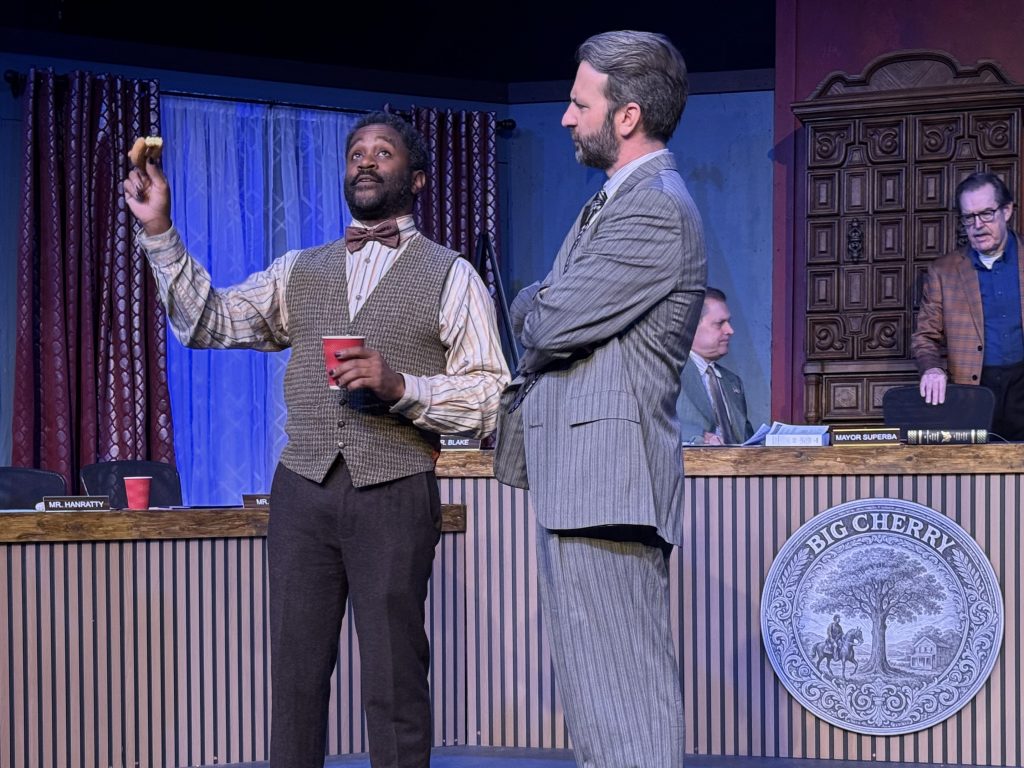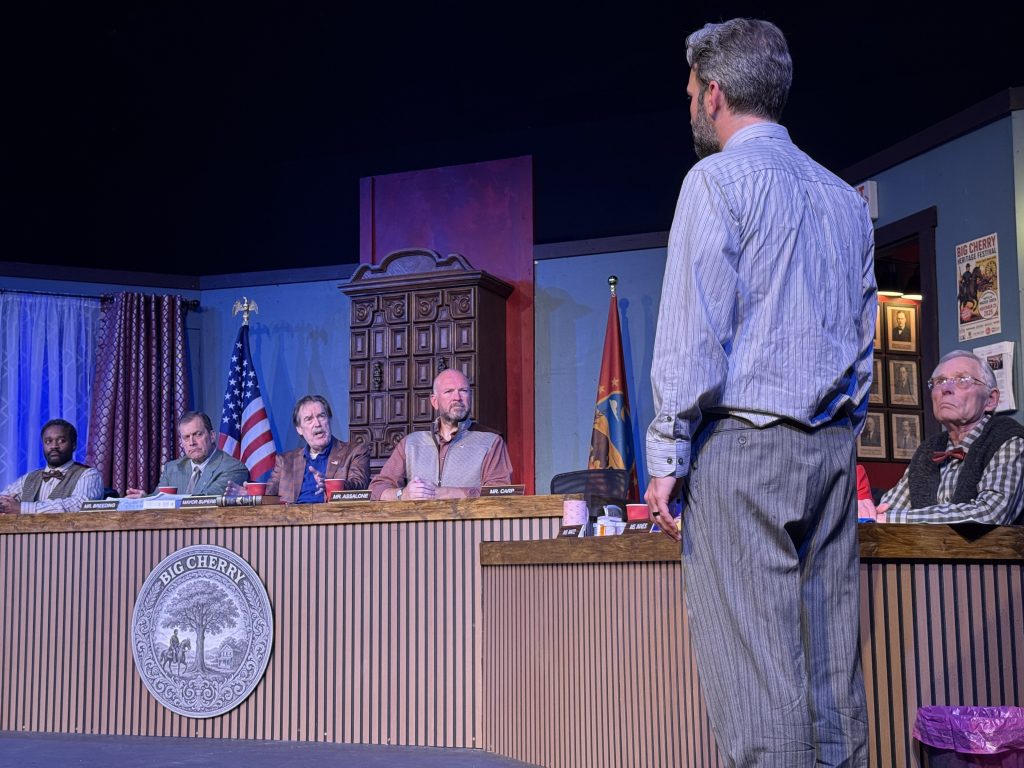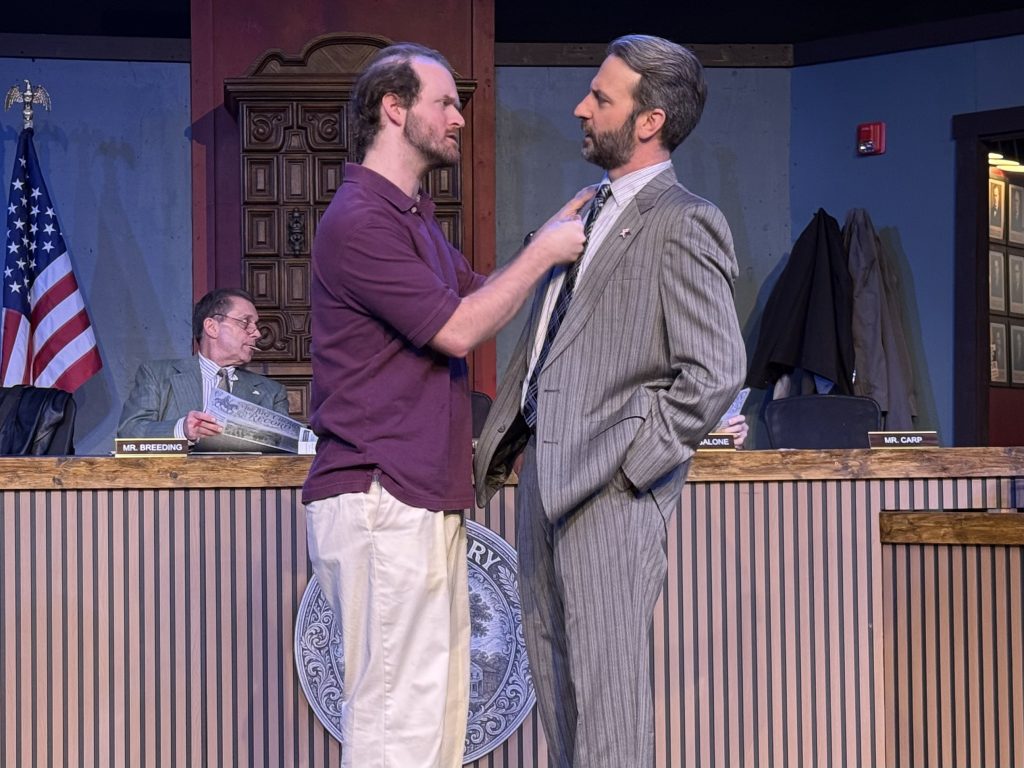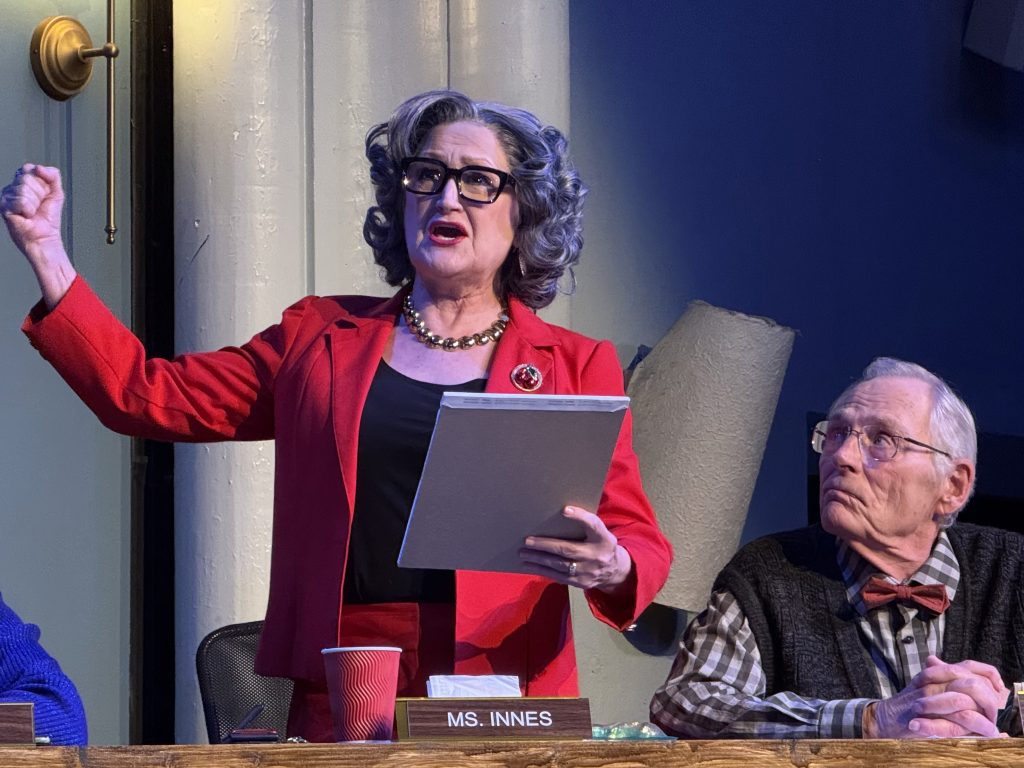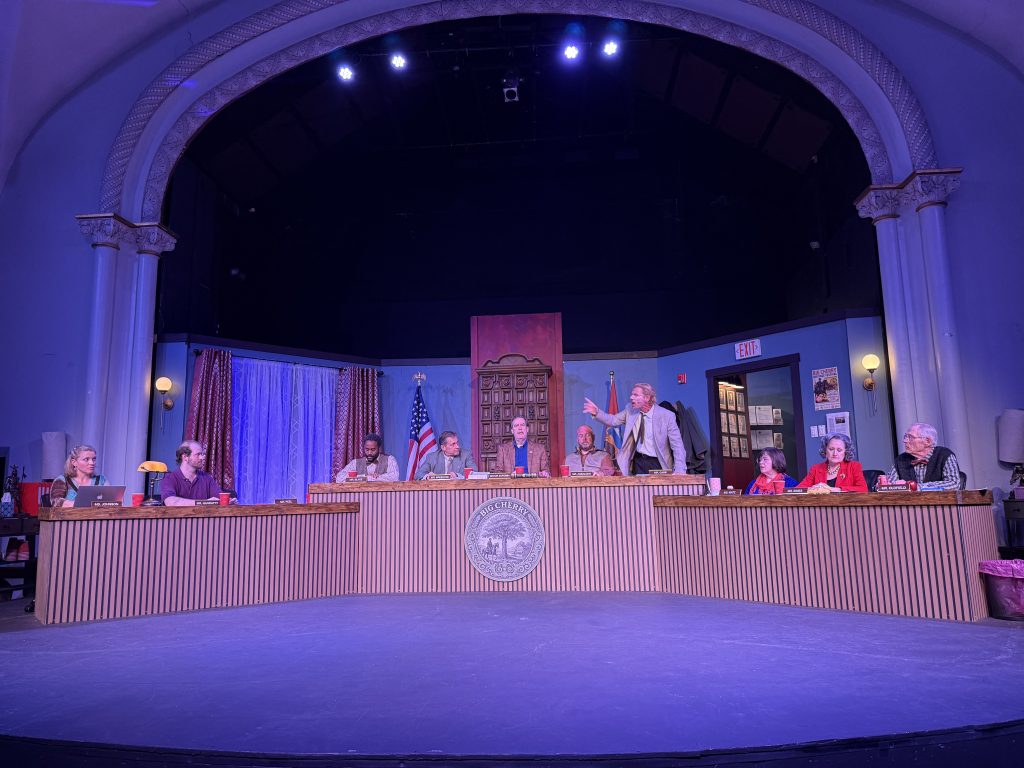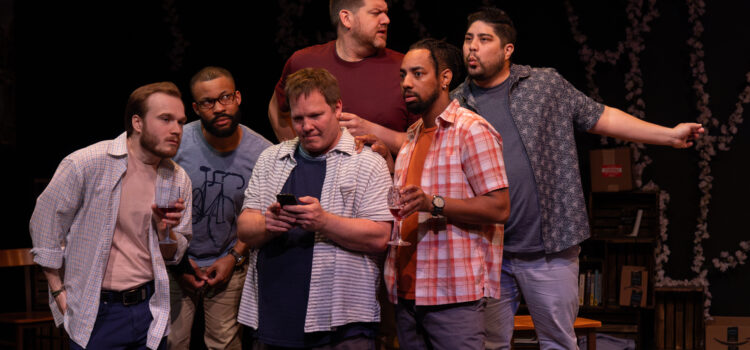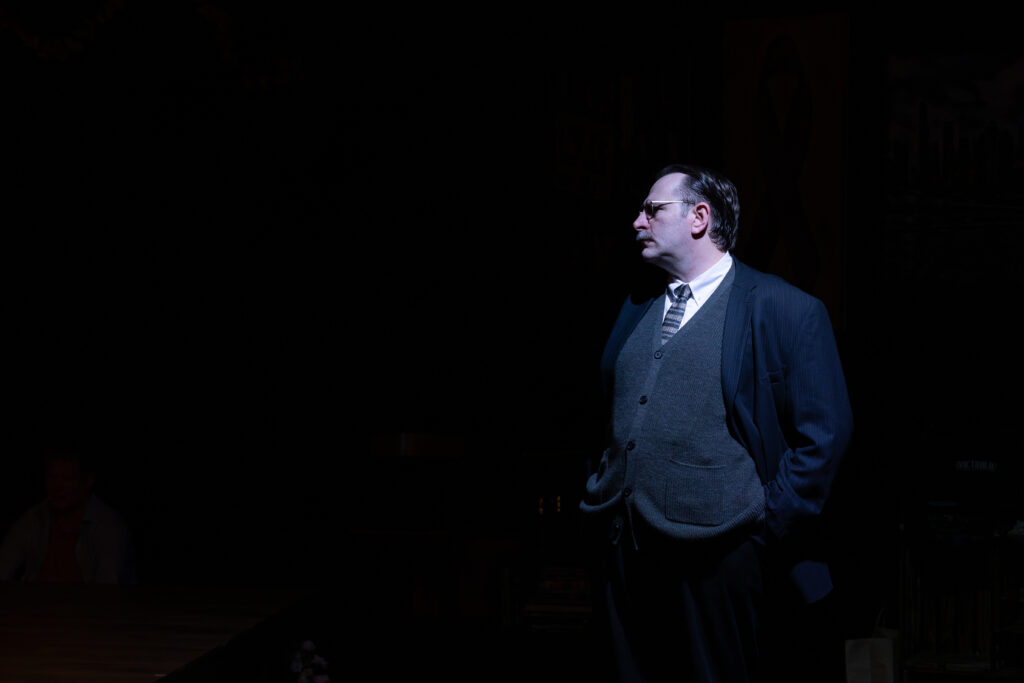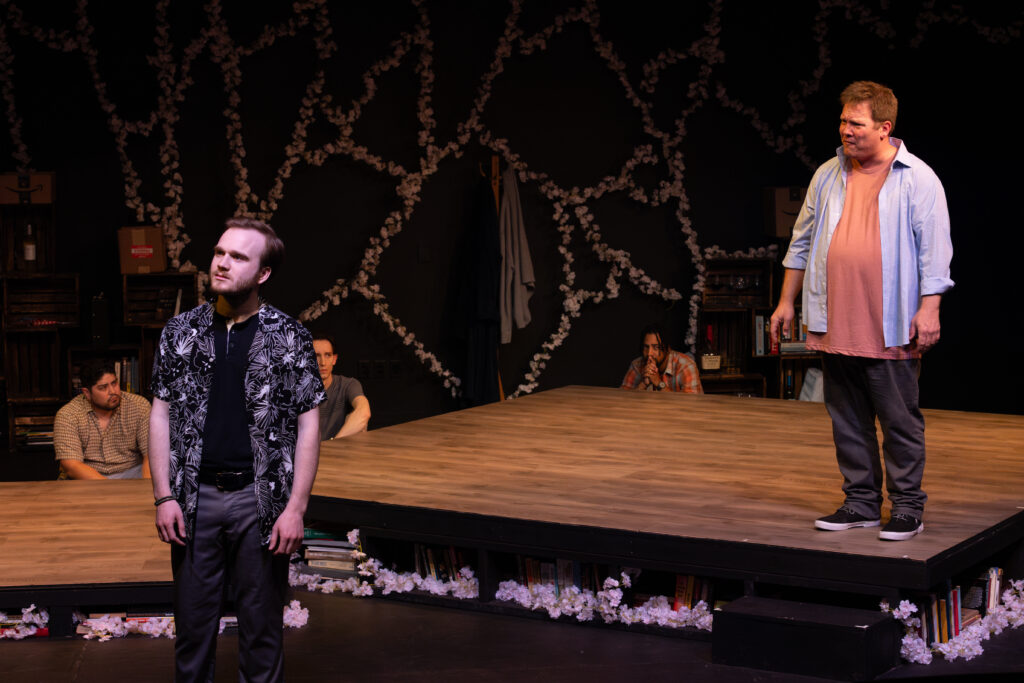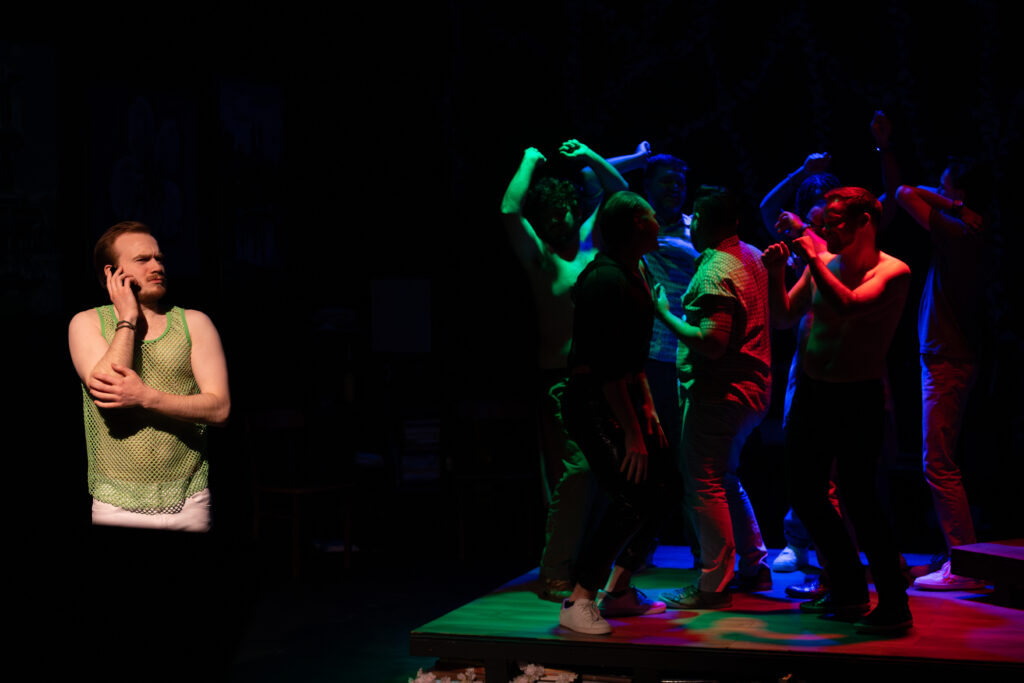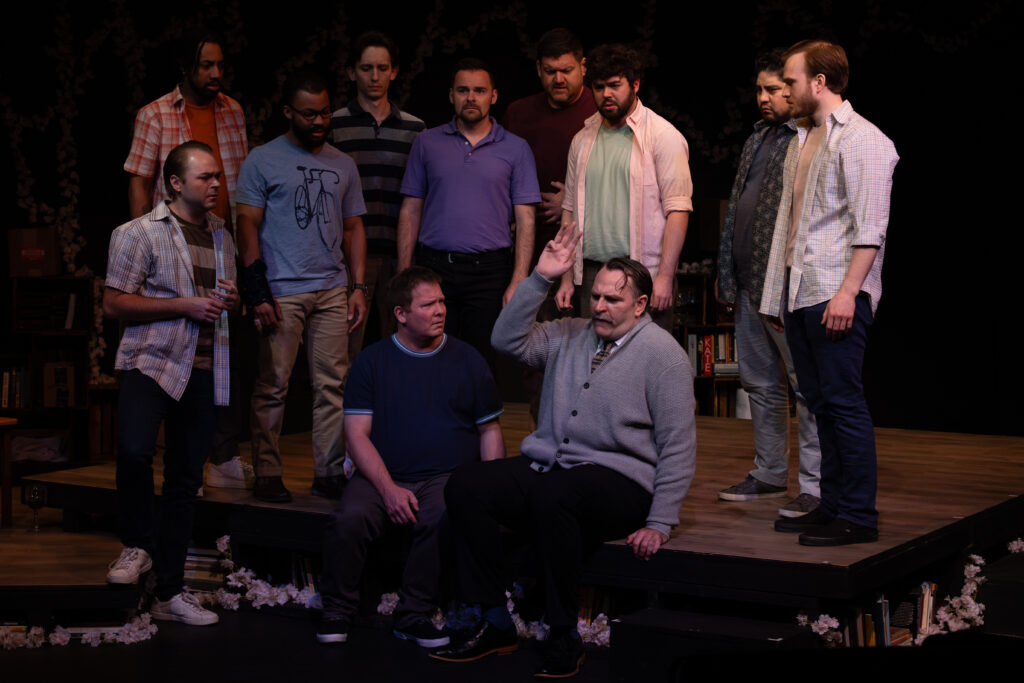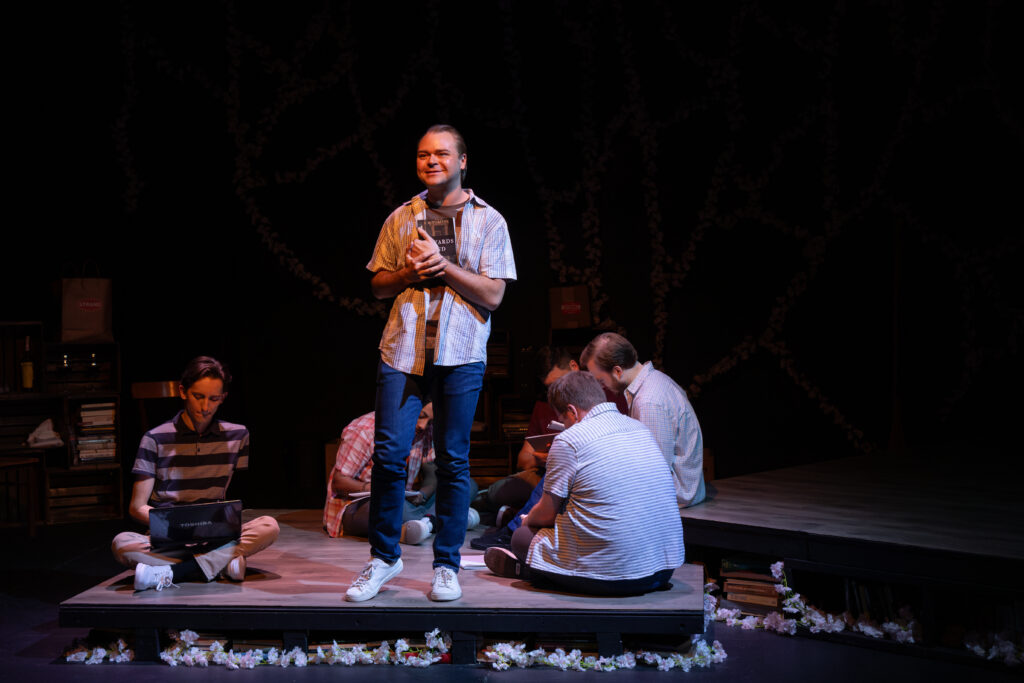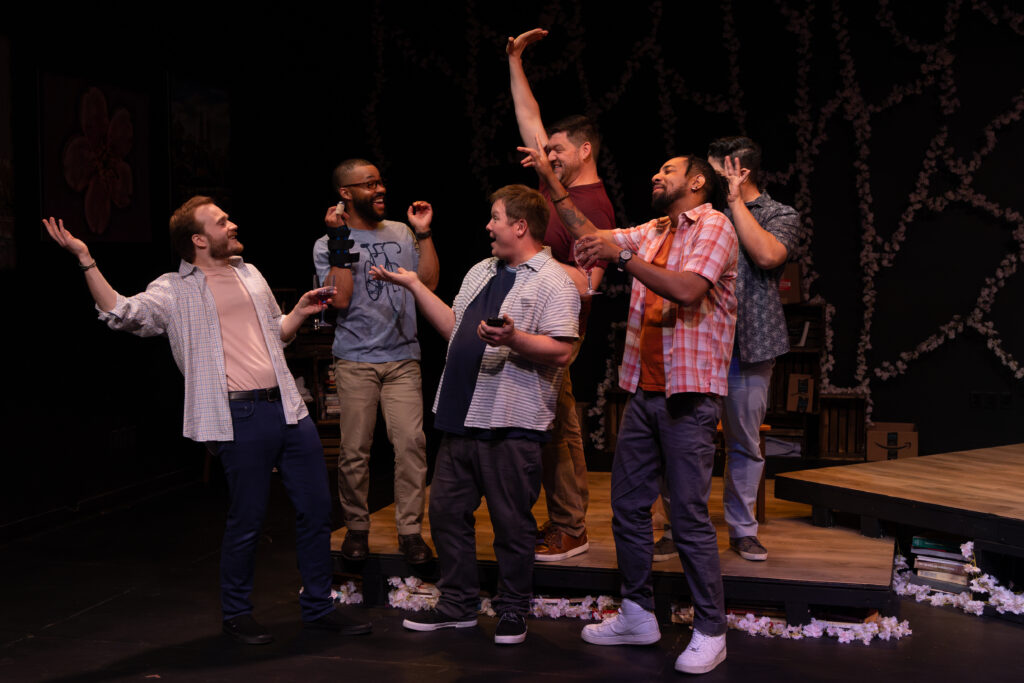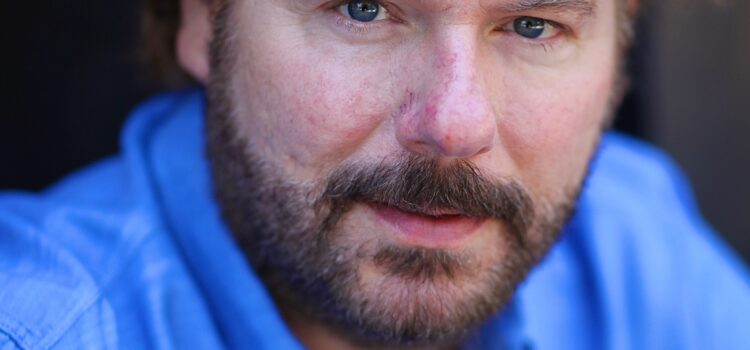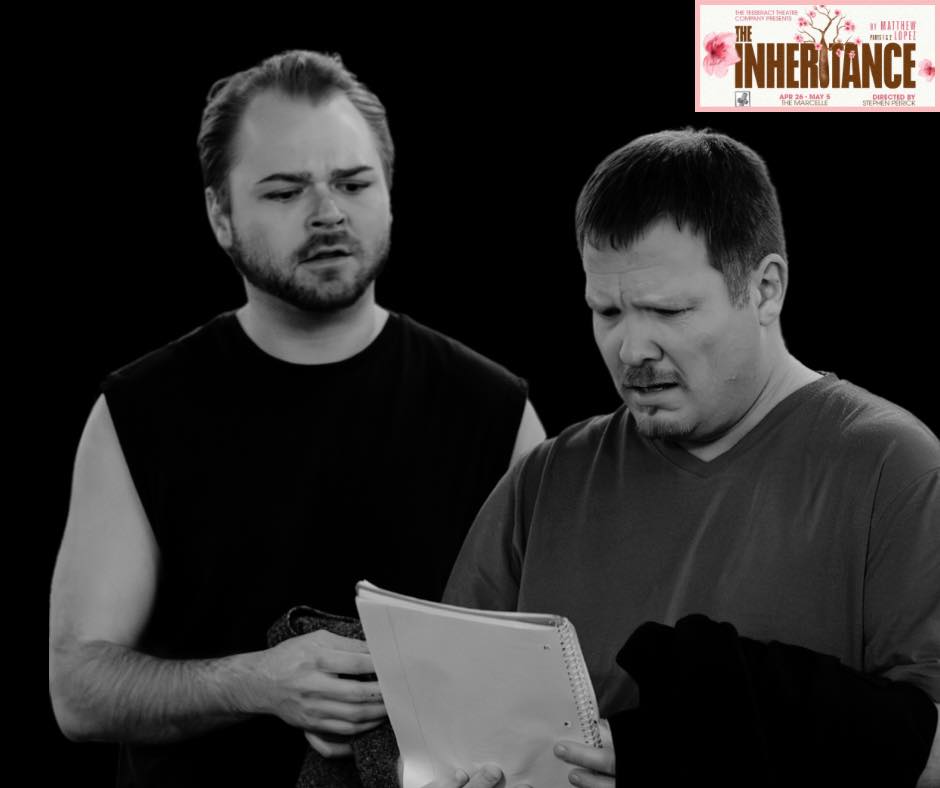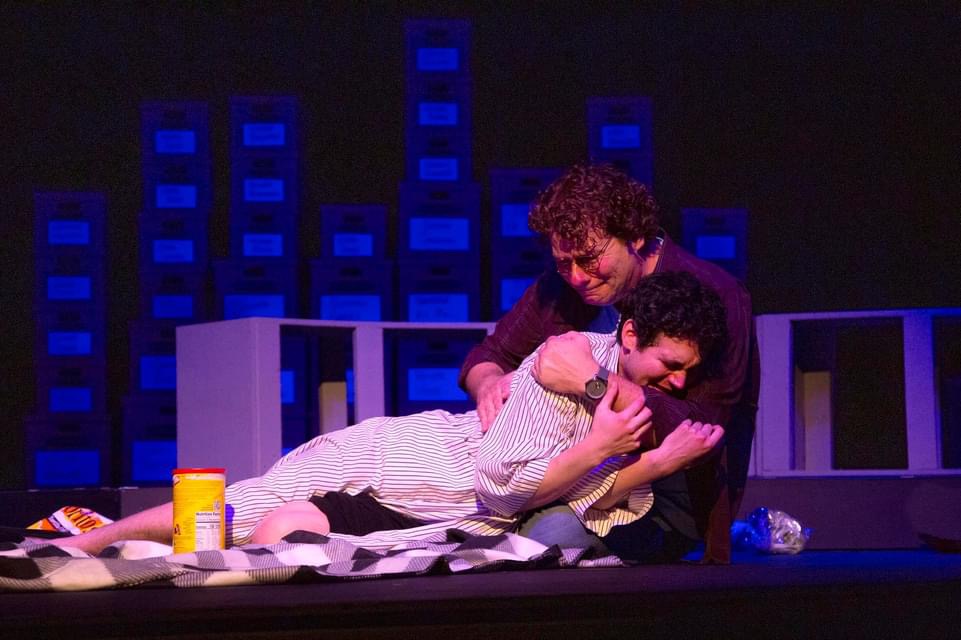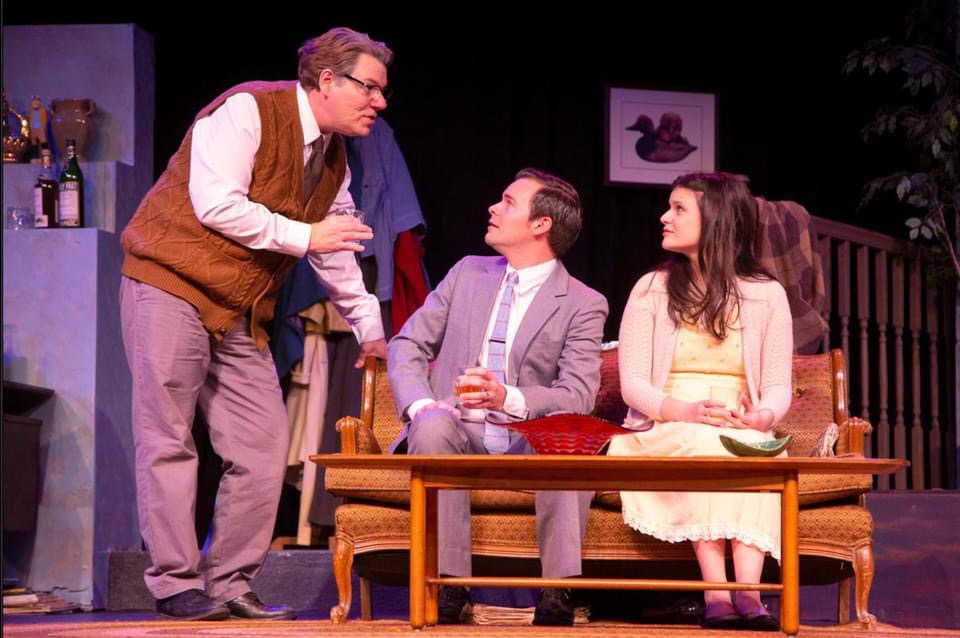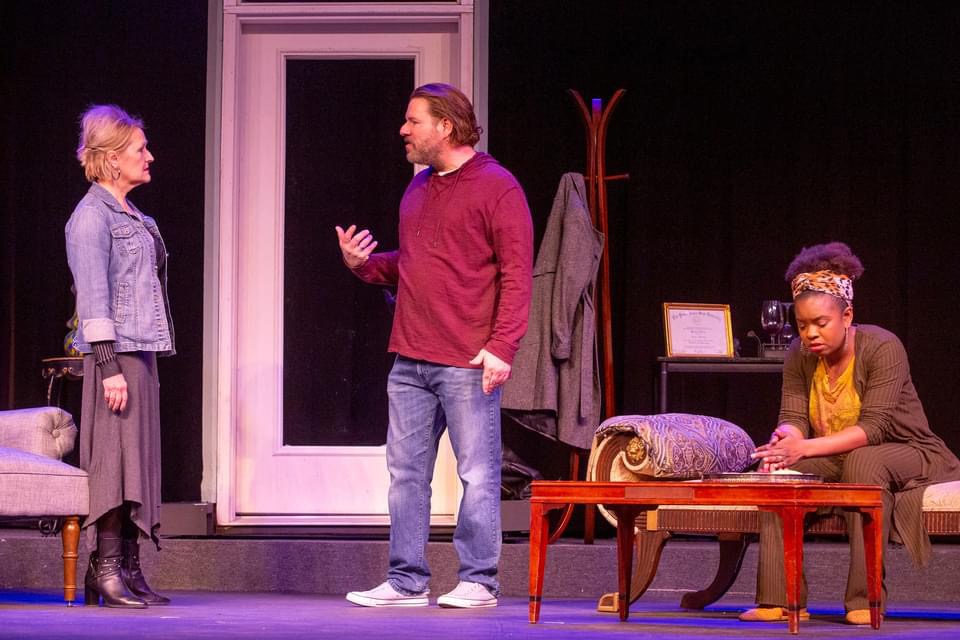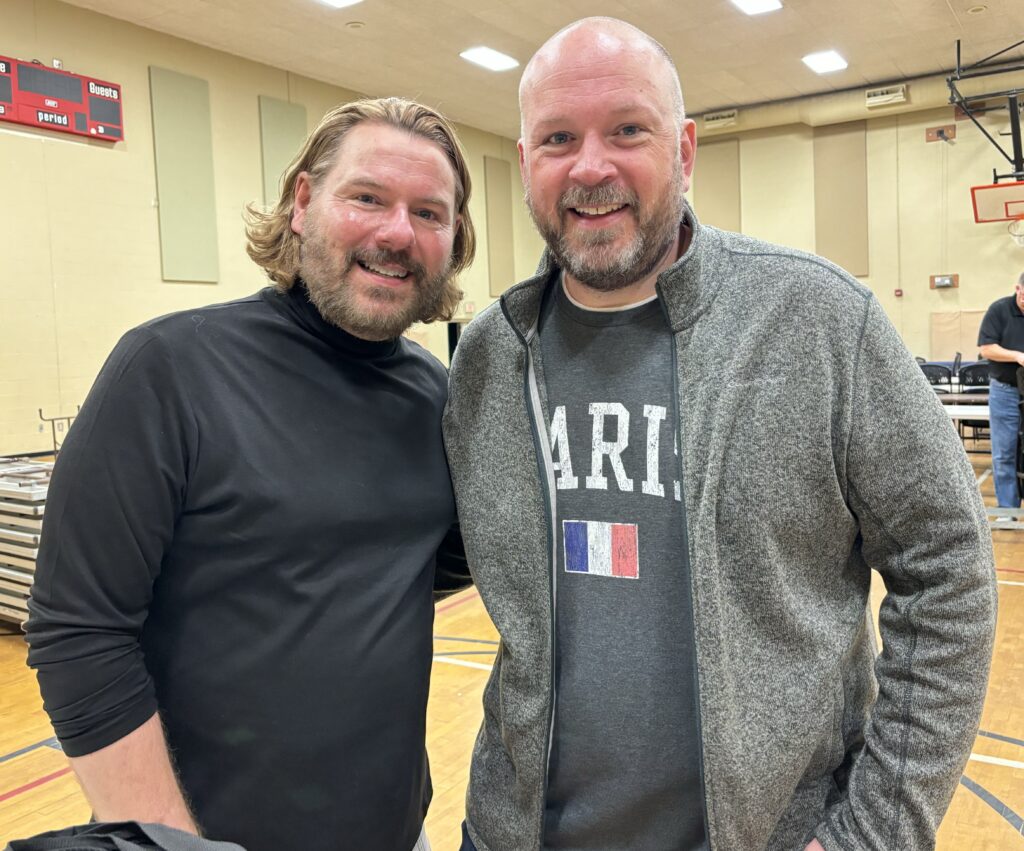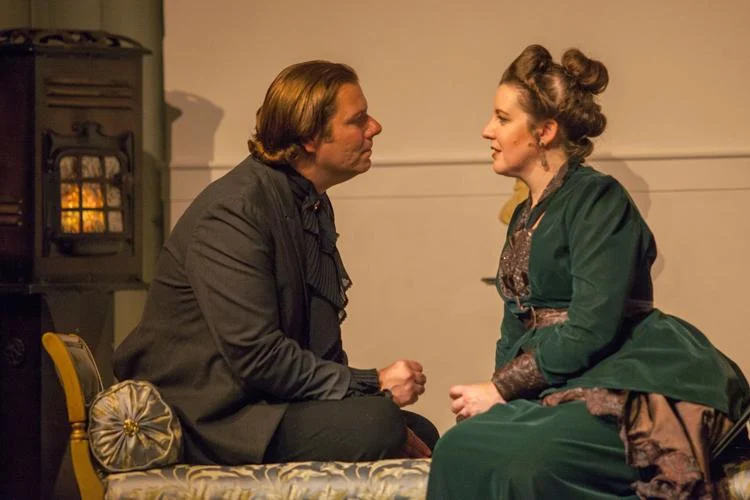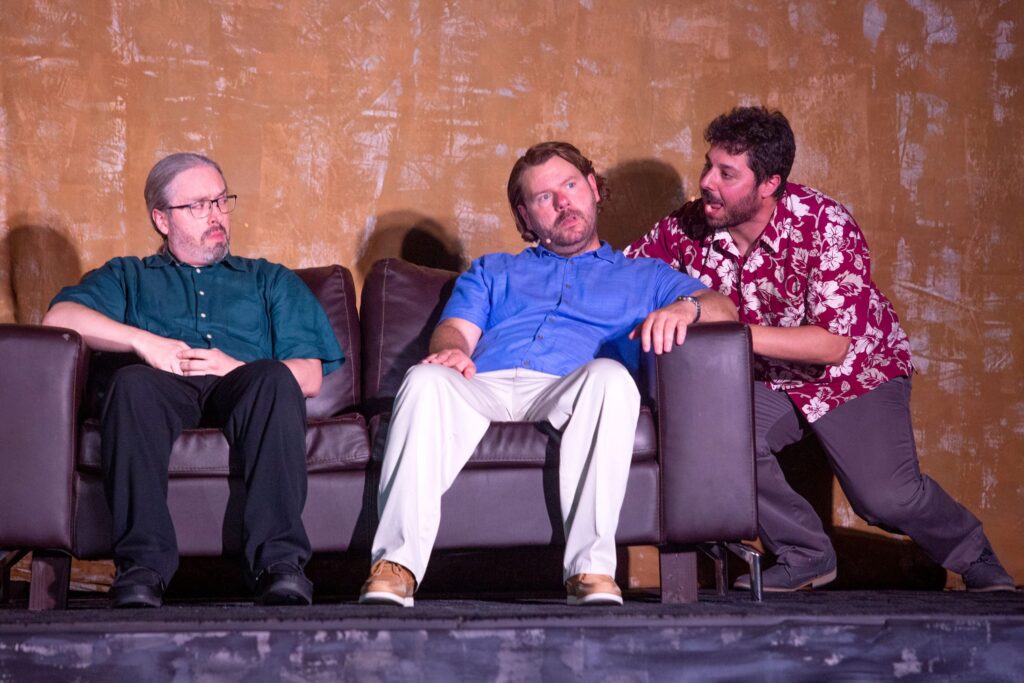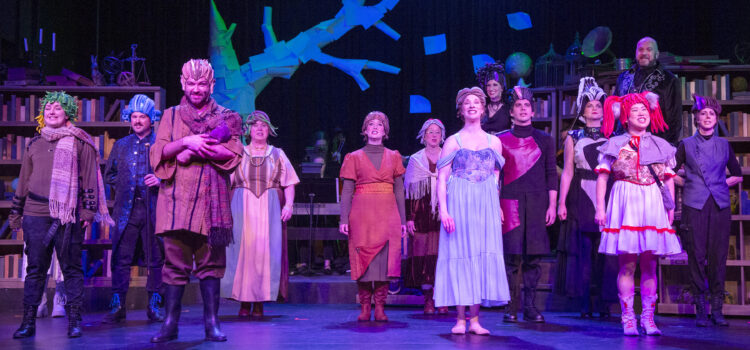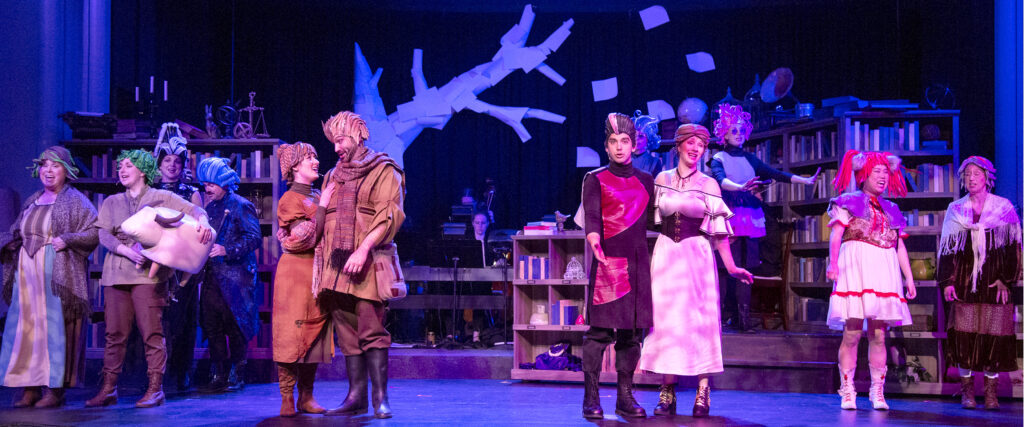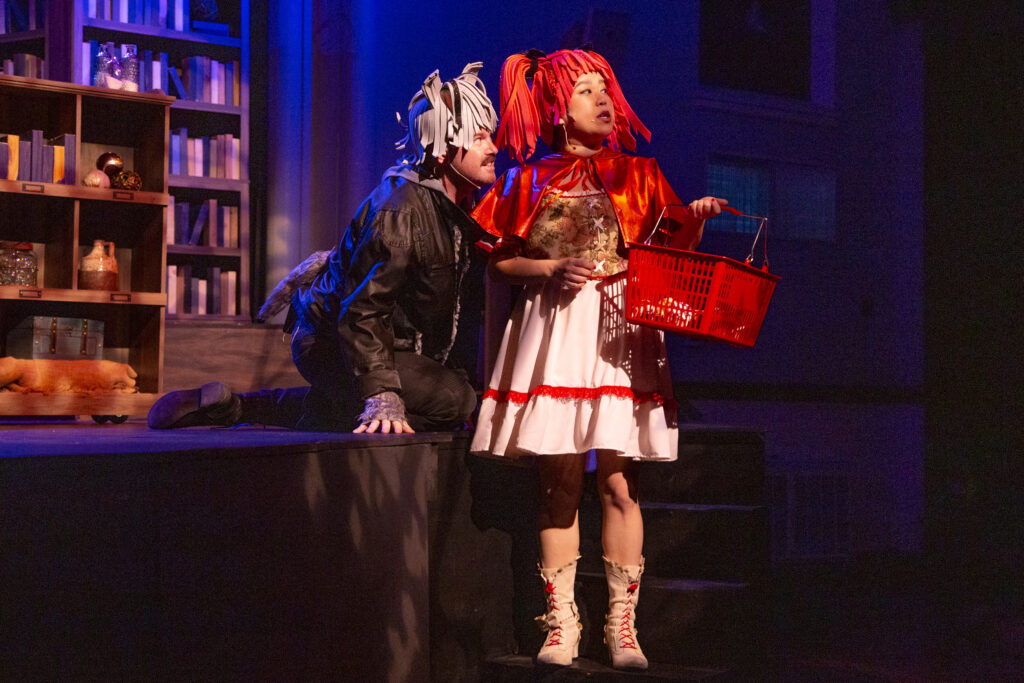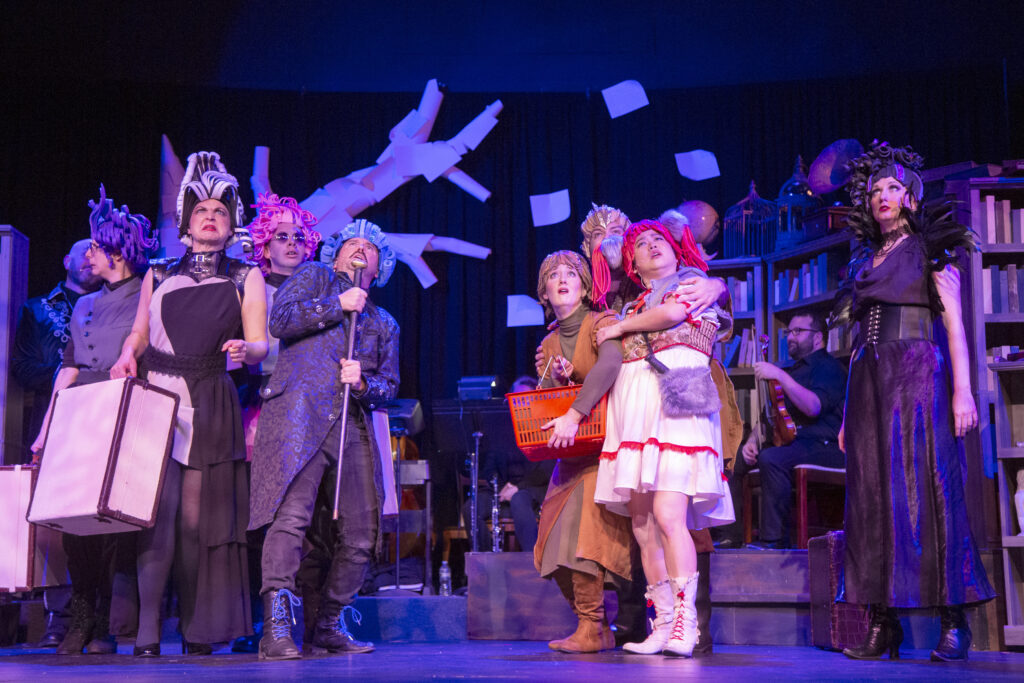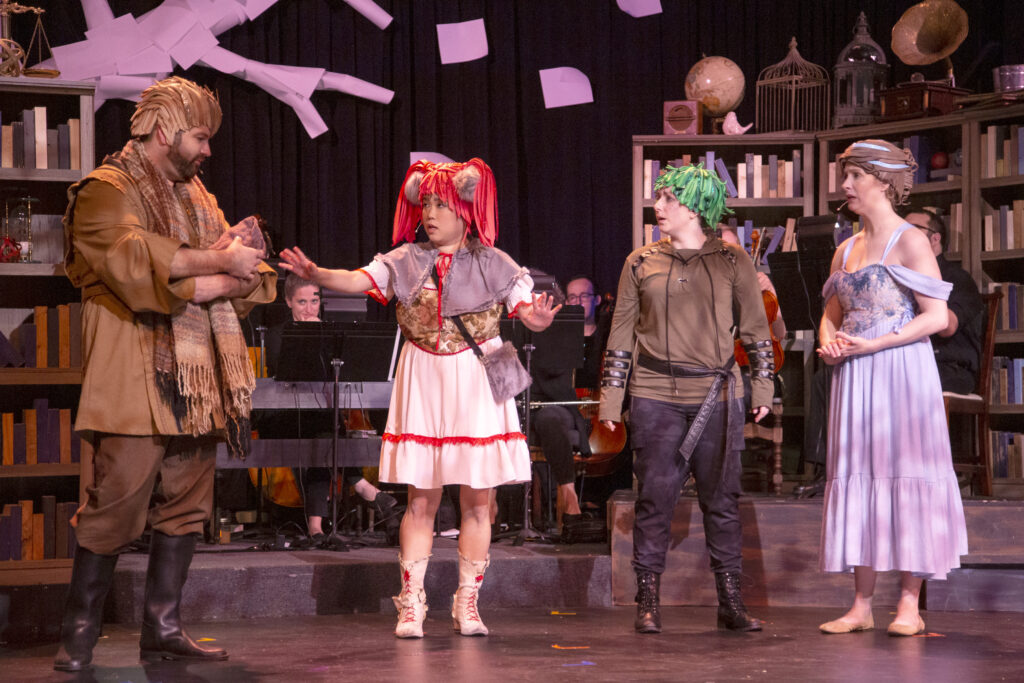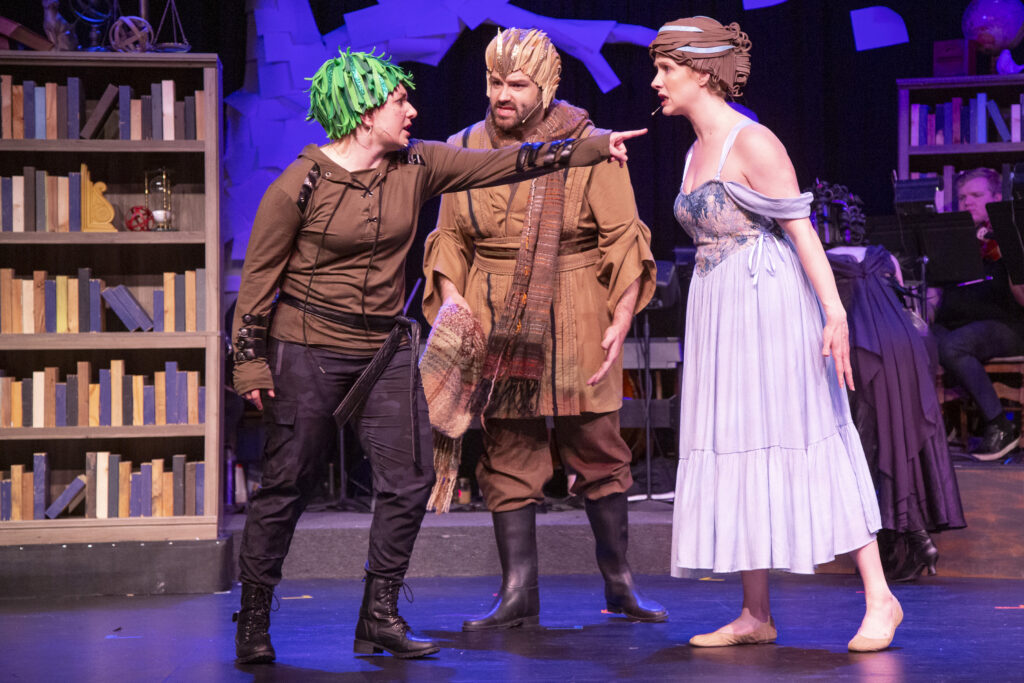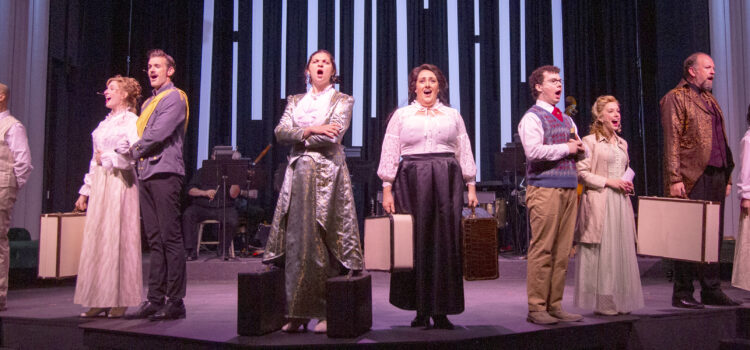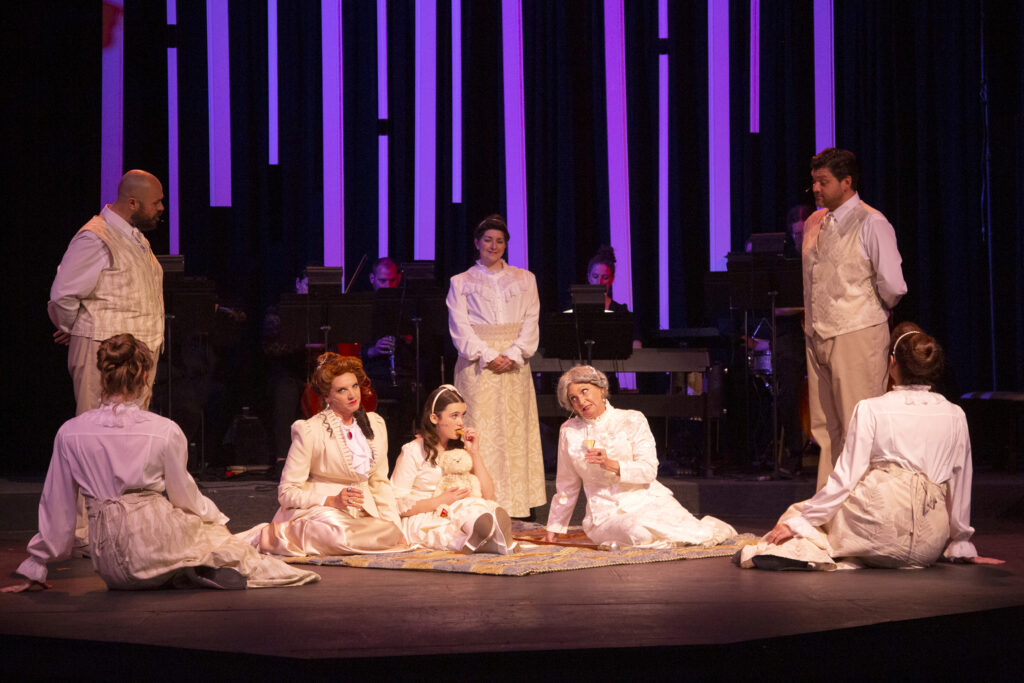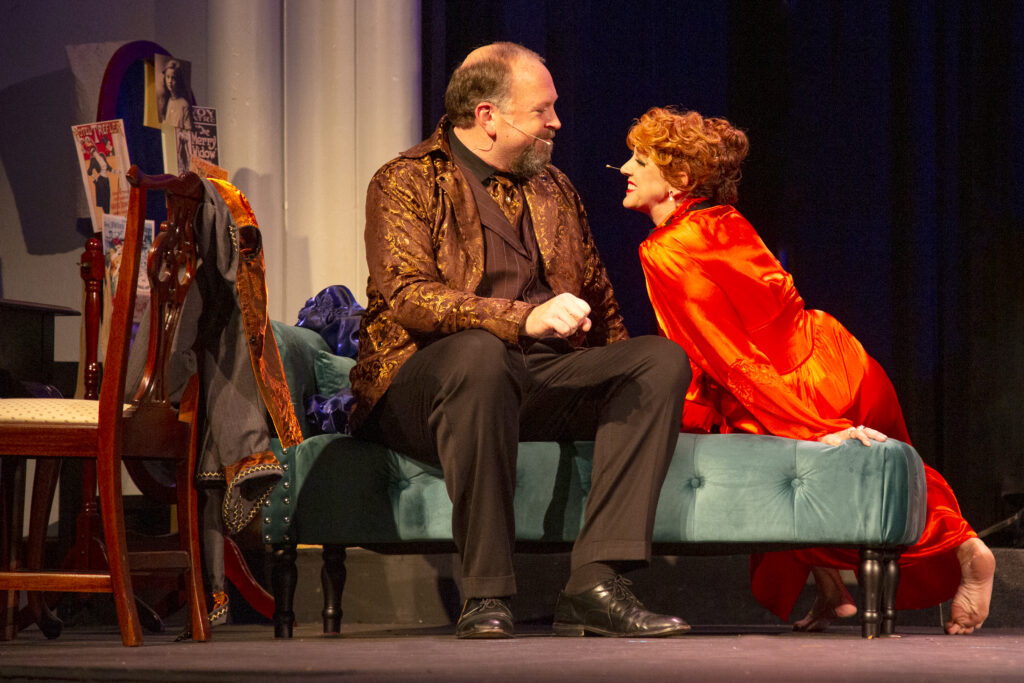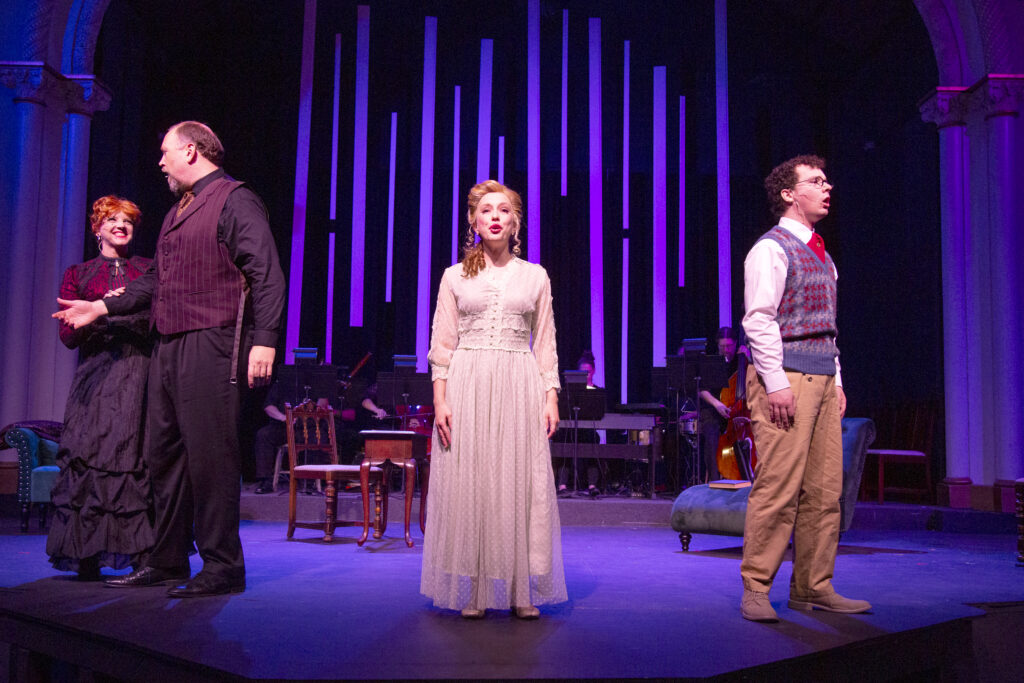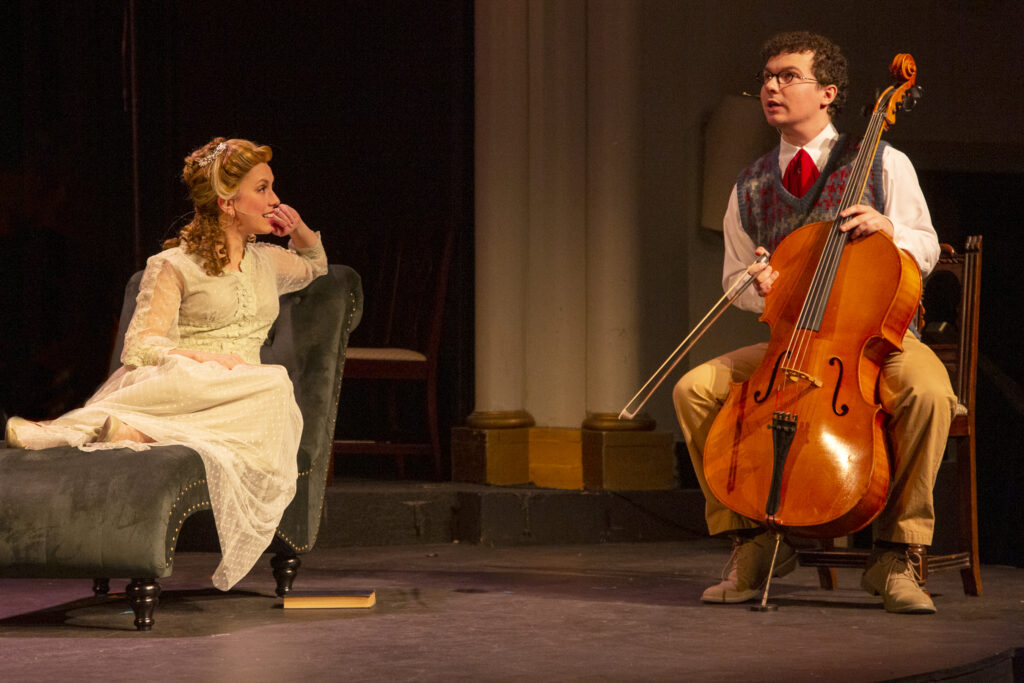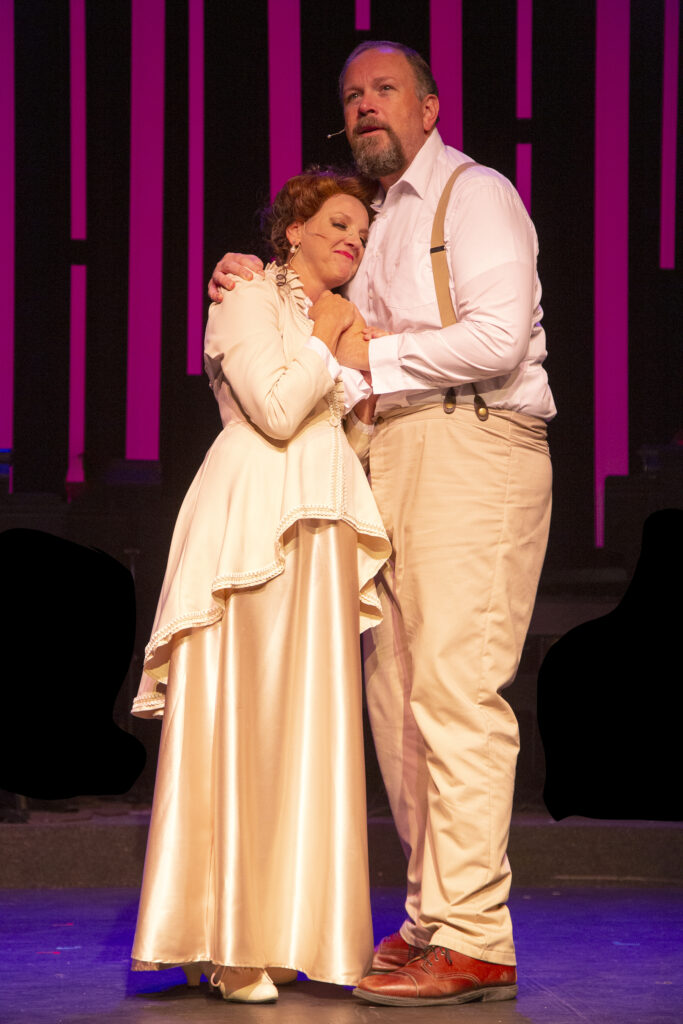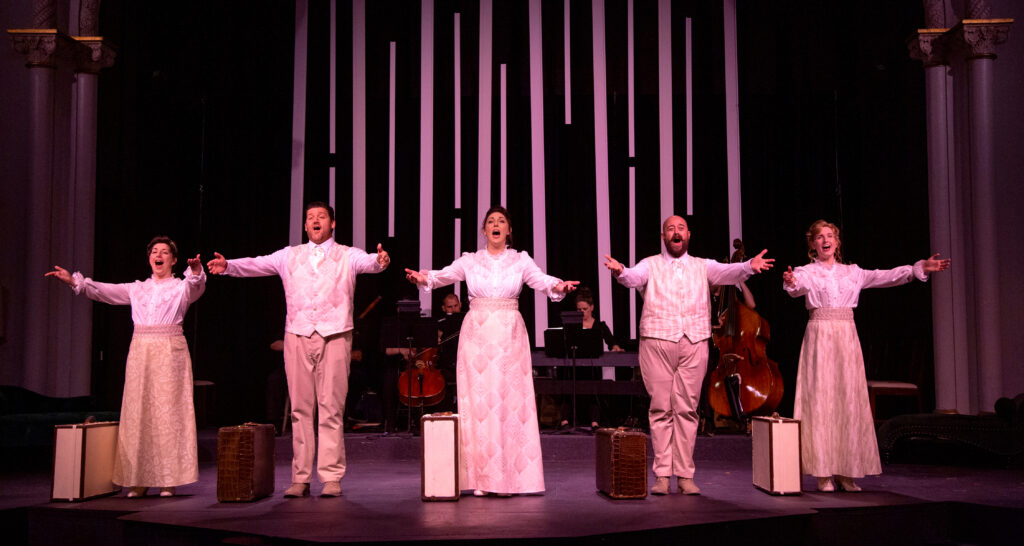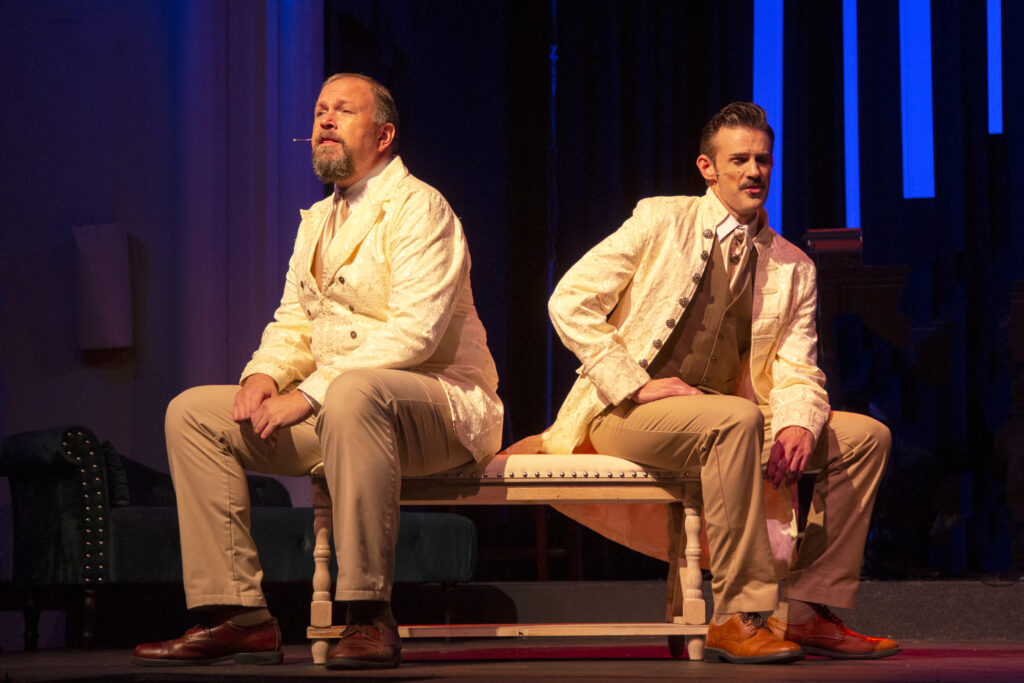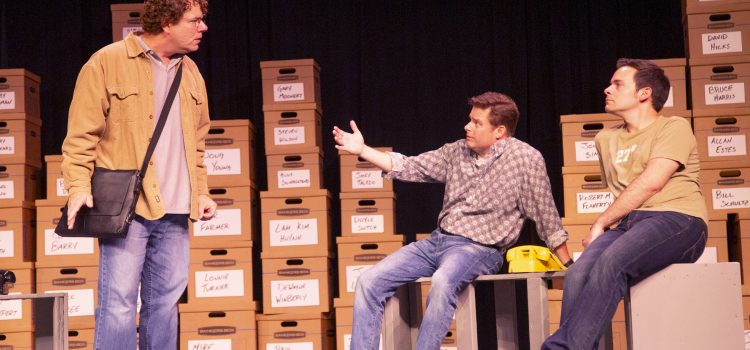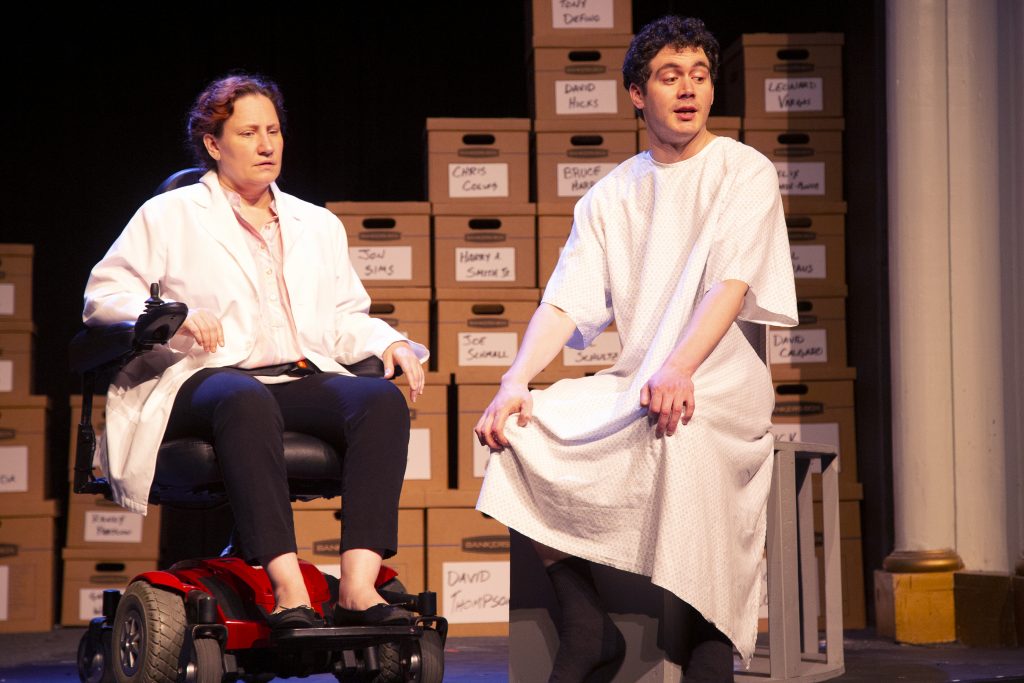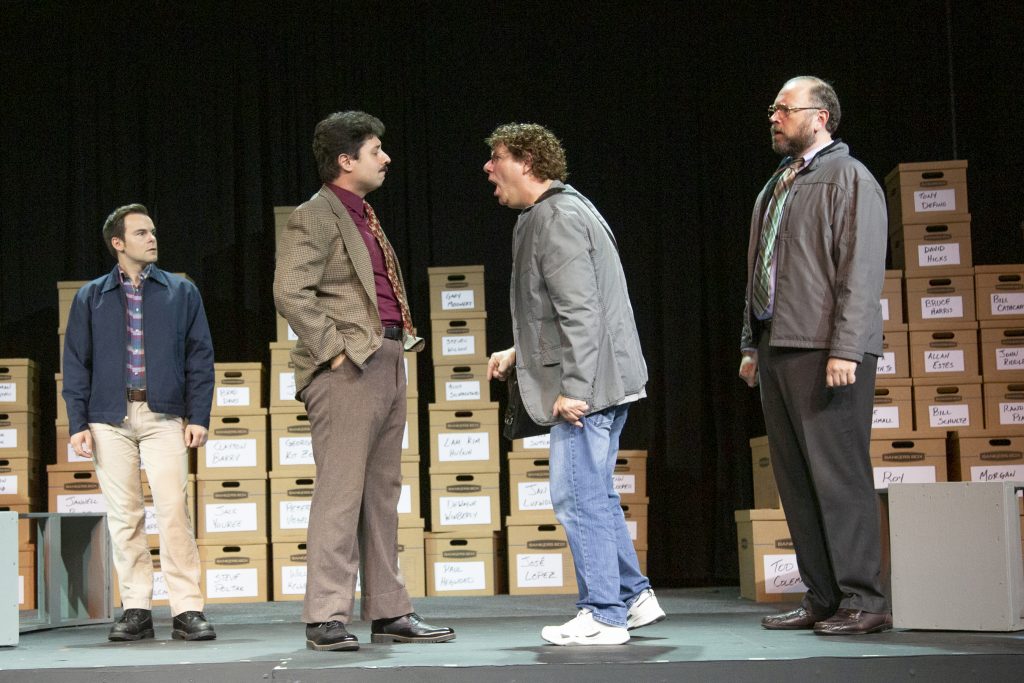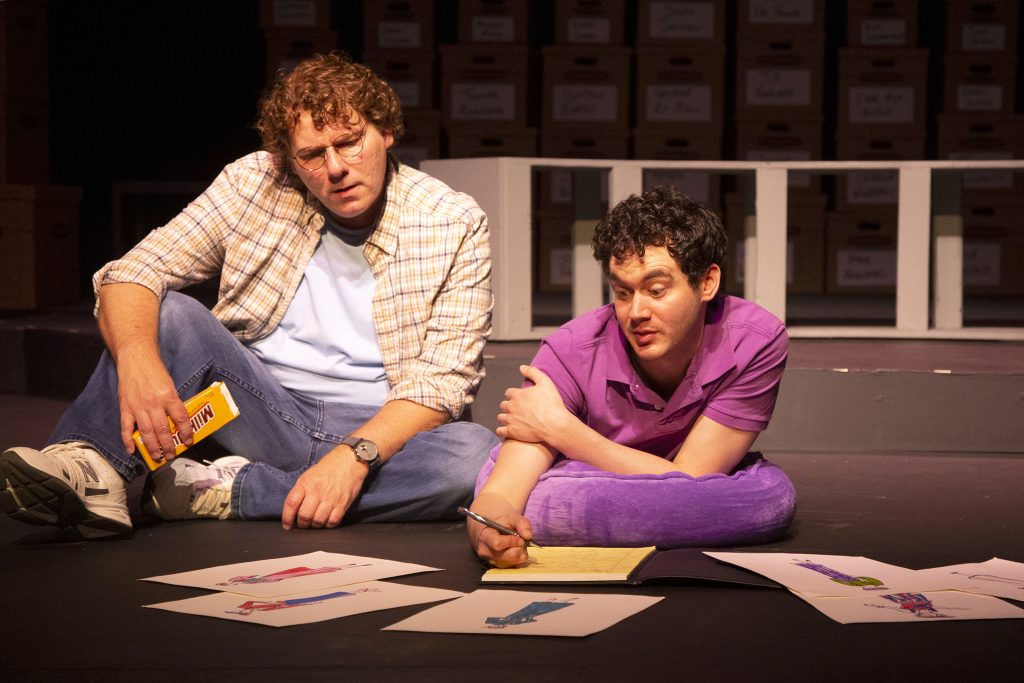By Lynn Venhaus
‘Tis the season to emphasize “Believe,” and that’s a fitting attitude about the iconic Elle Woods, the musical “Legally Blonde,” and Tesseract Theatre Company itself.
The “Little Engine That Could” theater group, which mirrors Elle’s plucky, positive demeanor, has produced a fresh, fun, fizzy and feisty reimagining of the upbeat 2007 musical adaptation of the smash hit 2001 romantic comedy.
As the iconic Elle Woods, Grace Seidel is at her best, strong in portrayal of the bubbly California sorority girl who gets into Harvard Law School after a crushing break-up. As she discovers how smart, resilient and dedicated she is, finding her purpose, Seidel triumphs, tossing the blonde ‘bimbo’ first impression out the door.
She defies the stereotype and smoothly slips into champion mode – representing anyone who has had to fight to be seen and heard. And rocks the pink outfits, too.
Known for her powerful vocals, she strikes the right chord with her passionate delivery of Elle’s breakthrough anthem “So Much Better” and turning point “Chip on My Shoulder.” She wins over the other characters in vibrantly staged ensemble numbers, including “Positive,” the ebullient “Legally Blonde” and rousing finale “Find My Way.”
Seidel is not the only bright spot who has a renewed, refreshed take on the musical. Just as you shouldn’t underestimate Elle’s inner light to shine through, there are a few memorable debuts joining reliable veterans in the ensemble.
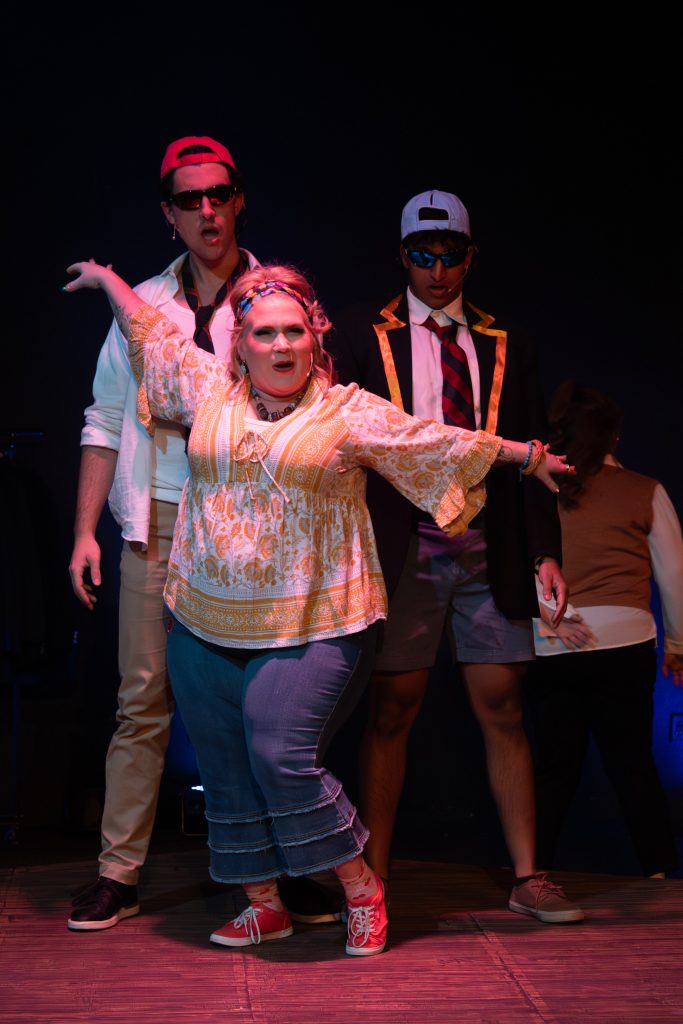
In a knockout debut, Marsiya Miller is a hoot as Paula Buonufonte, the hairdresser with heart of gold. She is a skillful vocalist in her solo “Ireland,” and has sharp comic timing too, as she develops a palpable bond with Elle.
Fellow newcomer Kyle Rudolph is delightful as the UPS delivery man, also named Kyle, a definite scene-stealer with fleet footwork in the Irish step dance part of “Ireland.” His high-energy performance is noteworthy in ensemble numbers, too.
In another impressive debut, Mason Ramsey portrays the shallow, privileged Warner Huntington III, who breaks up with Elle because she’s not “Serious” enough. He has the poise of someone that’s already a stage veteran.
Newcomer Aditi Seetharaman embodies the haughty Vivienne Kensington, Warner’s new girlfriend and condescending law student who humiliates Elle — but eventually has her ‘aha’ moment.
Seasoned pros who contribute their customary excellent work include Dawn Schmid as exercise guru Brooke Wyndham, who is accused of killing her husband; Jon Hey as the distinguished, demanding Professor Callahan; and Katie Orr hilarious as quirky activist Enid Hoopes.
Kevin Corpuz is charming as the lovable, smart Emmett Forrest, a law student who befriends Elle and sees her potential, helping her to realize it. He and Grace have worked together multiple times, most notably in the two-hander “The Last Five Years” at Tesseract in 2023. They have a noticeable ease with each other in the makeover number “Take It Like a Man” and the turning point “Chip on My Shoulder.”

The Greek Chorus of Delta Nu sorority sisters is sprightly support – Natalie Sannes as energetic Serena, Lillie Self-Miller as chipper Margot, and Evan Lee as sassy Pilar, starting off with the cheery “Omigod You Guys” and being Elle’s sounding board.
Ella Drake, Martin Ibarra, Molly Stout (dance captain), Loren Goudreau, Aadi Kadam and Rudolph are supple in supporting roles that range from shop clerks, students, frat boys, scummy ex-boyfriend, presiding judge, trial witnesses, salon customers and assorted others.
Jo Palisoc’s choreography is crisp and snappy, notably the standout jump-rope number “Whipped into Shape” that is a demanding aerobics workout routine. Admirably, the dancers don’t miss a beat. Always a favorite, the “Bend and Snap” is as fun as ever.
The band is an expert group of eight musicians under the musical direction of virtuoso Larry D. Pry, who kept the music by Tony nominees Laurence O’Keefe and lyrics by Nell Benjamin tight and bright. Pry joined Becca Bessette and Brayden Bessette on keyboards, Chuck Evans on violin, Mary Jewel Wiley and Lea Gerdes on reeds, Joe Winters on percussion, Mat Coble on guitar and Jonah Larsen on bass. They were polished and peppy.
Inventively staged by director Will Bonfiglio in the cozy confines of The Marcelle Theatre, he keeps the scenes moving along, from the Hair Affair Salon to Harvard Yard, dorm rooms and shops, using different nooks that scenic designer Brittanie Gunn has crafted in imaginative ways.
He has adroitly mixed humor with a courtroom drama and boosted the girl power. He focused on bringing out the heart and humanity, spotlighting a community coming together and people finding out where they belong.

If you look beyond the fluff, which is why both the movie and musical endure, the show is thematically strong by exposing prejudice, harassment and discrimination. The Tony-nominated book by Heather Hach is an adaptation of Amanda Brown’s 2001 novel, which was based on her experience at Stanford Law School.
When Elle saves the day using her sparkle and coming up with her unconventional legal strategies, it’s a satisfying victory that feels earned. I mean, look at this logic: “Exercise gives you endorphins. Endorphins make you happy. Happy people just don’t shoot their husbands, they just don’t.” — Elle
Carly Uding’s costume design, along with Sarah Gene Dowling’s wig design, created appropriate looks for every character. Morgan Brennan’s lighting design and Jacob Baxley’s sound design suited the show, with Kevin Sallwasser technical director, Sarah Baucom production manager and Lexi Sims stage manager keeping elements on task. Sims was aided by assistant stage managers Jae North and Josh Neighbors.
This production radiates warmth, good humor and empowerment. If you need a cup of kindness this holiday season, Tesseract’s “Legally Blonde: The Musical” overflows with cheer and optimism.
The Tesseract Theatre Company presents “Legally Blonde: The Musical” Dec. 5 – 21 at the Marcelle Theatre, 3310 Samuel Shepard Dr, St. Louis, Thursdays through Saturdays at 8 p.m. and Sundays at 4 p.m. For tickets or more information, visit www.TesseractTheatreco.org

Lynn (Zipfel) Venhaus has had a continuous byline in St. Louis metro region publications since 1978. She writes features and news for Belleville News-Democrat and contributes to St. Louis magazine and other publications.
She is a Rotten Tomatoes-approved film critic, currently reviews films for Webster-Kirkwood Times and KTRS Radio, covers entertainment for PopLifeSTL.com and co-hosts podcast PopLifeSTL.com…Presents.
She is a member of Critics Choice Association, where she serves on the women’s and marketing committees; Alliance of Women Film Journalists; and on the board of the St. Louis Film Critics Association. She is a founding and board member of the St. Louis Theater Circle.
She is retired from teaching journalism/media as an adjunct college instructor.


